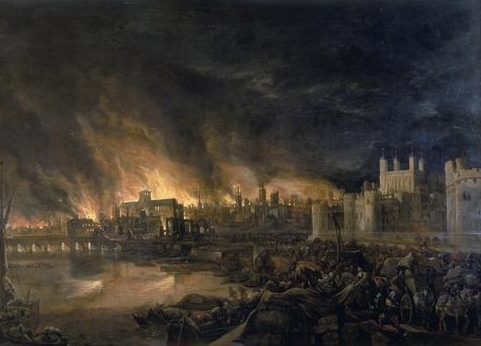
After the Great Fire of London, a French watchmaker named Robert Hubert confessed to having started the blaze in Westminster. When he learned that the fire had never reached Westminster, he claimed to have thrown a fire grenade into a bakery window in Pudding Lane. It turned out that the bakery had no windows, Hubert was too crippled to have thrown a grenade anyway, and in fact he hadn’t even arrived in London until two days after the fire had started. He was convicted and hanged anyway.
Related: In 1797, the crew of the frigate Hermione mutinied and killed the cruel captain Hugh Pigot. An Admiralty official later reported, “In my own experience I have known, on separate occasions, more than six sailors who voluntarily confessed to having struck the first blow at Captain Pigot. These men detailed all the horrid circumstances of the mutiny with extreme minuteness and perfect accuracy; nevertheless, not one of them had ever been in the ship, nor had so much as seen Captain Pigot in their lives. They had obtained, by tradition, from their messmates the particulars of the story. When long on a foreign station, hungering and thirsting for home, their minds became enfeebled; at length they actually believed themselves guilty of the crime over which they had so long brooded, and submitted, with a gloomy pleasure to being sent to England in irons for judgment. At the Admiralty we were always able to detect and establish their innocence, in defiance of their own solemn asseverations.”
From Southwood Smith, “Lectures on Forensic Medicine,” in the London Medical Gazette, Jan. 20, 1838. See also The Campden Wonder.
